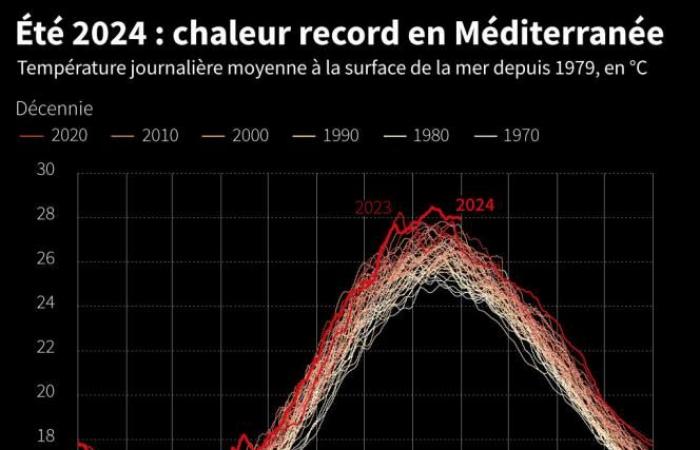Europe is not spared. Indeed, we knew that the summer of 2024 went down in history as the hottest ever measured on Earth and, inevitably, our continent is not immune to the trend.
Between June and August, the summer of 2024 recorded an average temperature 1.54°C higher than that of 1991 to 2020. The previous record, set during the summer of 2022, was beaten by 0.2°C.
The 66 days of severe heat stress in southeastern Europe also represent a jump of 37 days compared to the average for the period 1991-2020.
Parts of Greece and western Turkey even experienced this severe heat stress every summer day. In these areas, the temperature felt was classified as “very severe thermal stress” for two months, above 38°C.

Climate Action Network suggests a “frequent flyer tax” to reduce air traffic
The consequences of heat stress include disorders such as dehydration and heat stroke, as well as increased morbidity and mortality due to the risk of cardiovascular and respiratory diseases.
Most of the European continent recorded a decline in the number of days of precipitation
And, as in Belgium, the quantity of rain has also varied in recent months. Most of the European continent recorded a decrease in the number of days of precipitation, while it increased in the north of the United Kingdom, Fennoscandia (Norway, Sweden, Finland and parts of northern Russia) and in the Baltic States with up to 20 additional rainy days.
In August, the surface temperature of the Mediterranean Sea also reached a new record.







